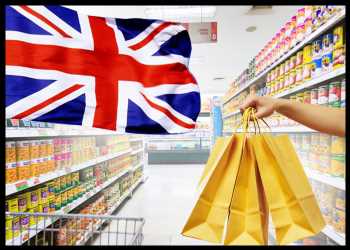
UK Retail Sales Expand More Strongly On Valentine's Day Boost
March 14, 2023UK retail sales grew at a faster pace in February boosted by the Valentine’s Day celebrations despite the cost of living crisis, data published by the British Retail Consortium and accountancy firm KPMG showed on Tuesday. Separate data from Barclays showed that Britons cut back on their card spend on non-essential goods in February.
Like-for-like sales increased 4.9 percent year-over-year in February, following a 3.9 percent gain in January. That was almost in line with the expected rise of 4.8 percent.
Data showed that overall retail sales grew 5.2 percent versus the 4.2 percent growth seen at the start of the year. Like-for-like food sales surged 8.2 percent compared to last year, while non-food sales rose at a competitively slower pace of 2.7 percent.
In spite of the cost-of-living crisis, customers are still willing to celebrate special occasions like Valentine’s Day, the BRC said.
“To protect people from ongoing price rises for goods, the Government must avoid additional regulatory costs on business that compromise retailers’ ability to invest in lowering prices and in other areas that would contribute to the UK’s economic recovery,” BRC Chief Executive Helen Dickinson said.
Paul Martin, UK Head of Retail, KPMG said, “The outlook will continue to be challenging with falling consumer spending in real terms and as more people choose to shop by ‘occasion’, retailers will be pulling out the stops for a buoyant Easter and Mothers’ Day,” Paul Martin, UK head of Retail, KPMG, said.
Consumer card spending annual growth slowed sharply to 5.9 percent in February from 9.7 percent in January, the latest Barclays UK Consumer Spend Report said.
Essential card spending grew by 6.7 percent, driven by grocery spend growth at 6.6 percent.
Fuel spend growth slowed to 5.0 percent in February from 9.3 percent in January as prices continue to fall.
Non-essential card spending growth eased steeply to 5.5 percent in February from 10.4 percent in January, as inflation drive prices higher. The January figure was inflated due to Omicron restrictions the previous year.
“It is clear that the cost-of-living squeeze is having an impact on consumers as they cut down on discretionary purchases, reflected by a number of Non-Essential categories slowing in spend growth this month,” Barclays Head of Client Insights Viktorija Lygnugaryte said.
Source: Read Full Article


